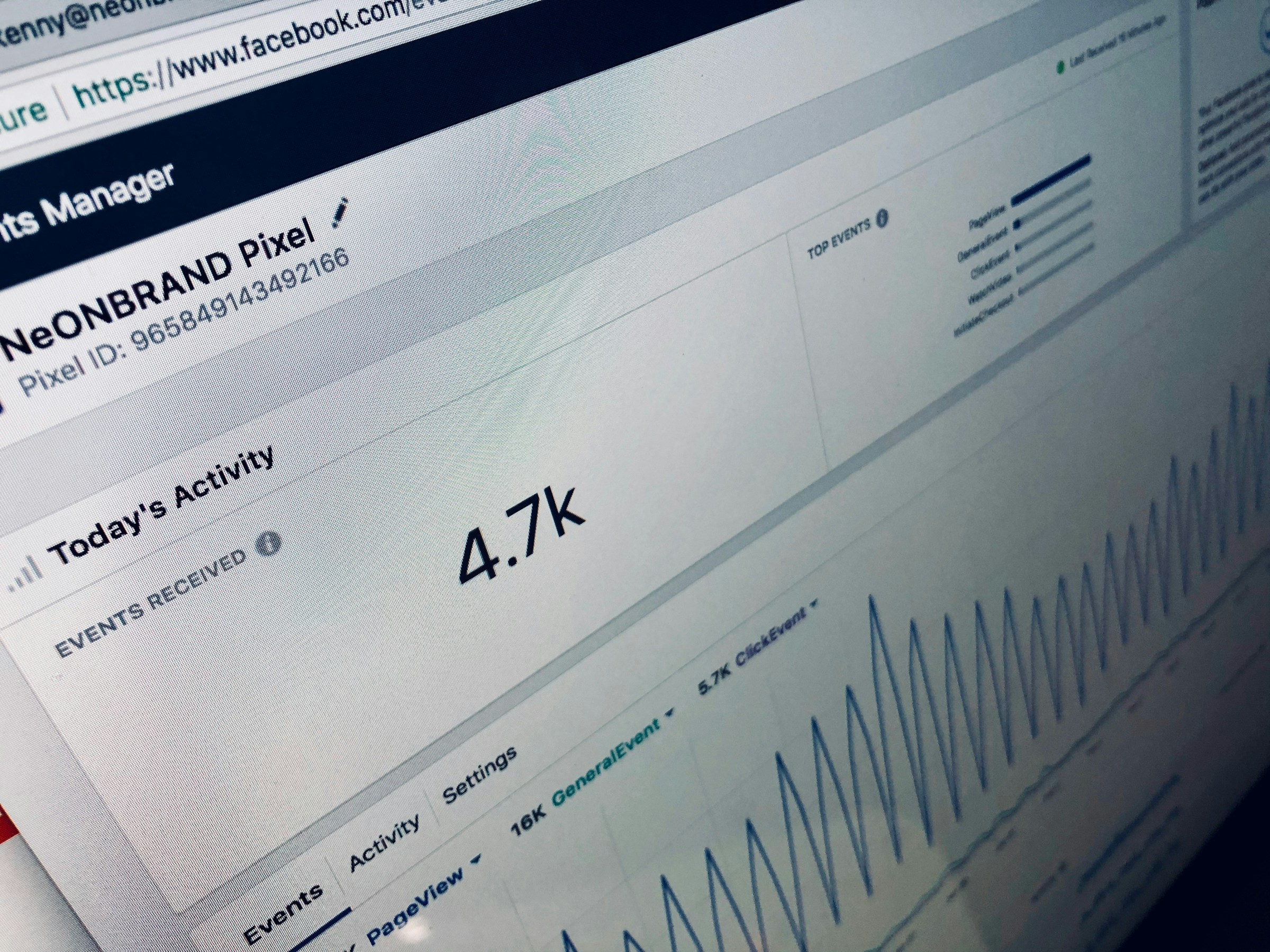Are you torn between Hubspot vs Marketo? Choosing between two CRM tools can be puzzling. How do you decide which CRM tool is the best for you? This blog helps you make a well-informed decision for omnichannel customer experience by comparing Hubspot vs Marketo.
Are you looking into Hubspot vs. Marketo? Rengage's omnichannel marketing platform can help you make an informed decision. Get ready to compare the two!
Table of Contents
- What is a CRM?
- Hubspot vs. Marketo - A Side-by-Side Comparison
- How to Choose a CRM Software
- Dive into Customer Journey Management with Rengage
- Choosing the Right CRM: Use Cases and Decision-Making
- A Step-by-Step Process to Evaluate CRM Systems
- Create Personalized Experiences That Drive Loyalty and Growth with Rengage's Omnichannel Marketing Platform
What is a CRM?

Customer Relationship Management (CRM) is a strategic approach to managing and analyzing customer interactions and data throughout the lifecycle to improve business relationships. It involves using technology to organize, automate, and synchronize:
- Sales
- Marketing
- Customer service
- Technical support
Why is CRM Important?
Understanding and responding to customer needs is paramount in today's competitive market. CRM systems offer a multitude of benefits:
Improved Customer Satisfaction
By centralizing customer information and providing a holistic view, businesses can deliver personalized experiences.
Increased Sales and Revenue
Effective CRM helps:
- Identify sales opportunities
- Streamline the sales process
- Close deals faster
Enhanced Customer Retention
By building stronger customer relationships, businesses can reduce churn and increase customer loyalty.
Better Marketing Targeting
CRM enables businesses to segment customers based on demographics, behavior, and preferences, leading to more effective marketing campaigns.
Improved Operational Efficiency
Automating tasks and workflows saves time and resources, allowing employees to focus on higher-value activities.
HubSpot and Marketo: A Closer Look
HubSpot
HubSpot is a popular choice for small to medium-sized businesses because of its user-friendly interface and comprehensive suite of tools. It strongly focuses on inbound marketing and sales, with features such as:
- Marketing Automation
- Email marketing
- CRM
- Customer service tools
HubSpot's all-in-one approach makes it a good option for businesses looking for a single platform to manage their marketing and sales efforts.
Marketo
Marketo is a robust marketing automation platform that emphasizes lead management and nurturing. Designed for larger enterprises, it offers advanced features like:
- Predictive analytics
- Account-based marketing
- Complex campaign orchestration
While it may have a steeper learning curve than HubSpot, Marketo provides greater flexibility and customization options.
Rengage: A Fresh Perspective
While HubSpot and Marketo are established players in the CRM market, emerging options like Rengage should be considered.
Highlight: Rengage's Focus on Customer Journey Management
One key differentiator of Rengage is its emphasis on customer journey management. By providing insights into customer behavior and interactions, Rengage empowers businesses to create personalized experiences at every touchpoint. This customer-centric approach can lead to increased engagement, loyalty, and revenue.
Related Reading
- Omnichannel CRM
- Omnichannel Marketing Tools
- Omnichannel eCommerce
- Omnichannel Marketing Strategy
- Omnichannel Personalization
- Omni Channel Marketing Examples
- Omni Channel Customer Engagement
- Omnichannel Marketing Automation
- Multichannel Marketing Automation
- Marketing Automation ROI
Hubspot vs. Marketo - A Side-by-Side Comparison

When comparing HubSpot and Marketo, it's essential to understand their core features and capabilities. While both platforms offer robust marketing automation tools, their strengths and focus areas differ significantly.
HubSpot: The All-in-One Solution
HubSpot has established itself as an inbound marketing powerhouse, synonymous with content creation, SEO, and social media. The platform emphasizes attracting and engaging potential customers through the following:
- Strong online presence
- Building trust and credibility with the audience.
User-Friendliness
HubSpot's interface is known for its intuitive design and easy navigation, making it a popular choice for small to medium-sized businesses. It balances functionality and simplicity, catering to users who appreciate a straightforward approach to marketing automation.
Comprehensive CRM
HubSpot goes beyond marketing automation by offering a comprehensive CRM system that covers:
- Sales
- Customer service
- Operations
This integrated approach allows for a unified view of the customer journey, fostering improved collaboration between different teams within an organization.
All-in-One Platform
HubSpot provides a suite of tools that includes:
- Email marketing
- Landing pages
- Lead management
- CRM
- Sales automation and more
This all-in-one approach makes it a one-stop shop for businesses with various marketing and sales needs.
Marketo: The Marketing Automation Powerhouse
Marketo is known for its advanced marketing automation features that excel in:
- Lead scoring
- Nurturing
- Campaign orchestratioN
The platform is designed to execute complex marketing programs and deliver personalized customer experiences, making it a powerful tool for businesses with sophisticated marketing automation requirements.
Enterprise Scalability
Marketo is tailored to handle large volumes of data and complex marketing initiatives, making it suitable for large enterprises with multiple marketing teams and global operations. The platform's scalability allows businesses to manage intricate marketing campaigns with ease.
Integration Capabilities
Marketo seamlessly integrates with other enterprise systems like CRM, ERP, and analytics platforms, providing a holistic view of customer data. This integration enables data-driven decision-making and empowers businesses to make strategic marketing decisions based on comprehensive insights.
Steeper Learning Curve
Marketo's advanced features come with a steeper learning curve than HubSpot's. Harnessing Marketo's full potential requires technical expertise and more implementation time, making it a better fit for businesses with the resources to manage the platform's complexity.
Pricing and Plans
HubSpot offers a free plan with limited features and a tiered pricing structure based on the number of users and features. This flexible pricing model caters to businesses of all sizes, making the platform accessible to many users.
Marketo typically has higher pricing with enterprise-level plans and custom packages. The platform's cost reflects its advanced features and scalability, making it a more suitable option for businesses with larger budgets and complex marketing needs.
Target Audience
HubSpot is ideal for small to medium-sized businesses looking for a user-friendly, all-in-one platform to manage their marketing and sales efforts. The platform is also suitable for larger businesses seeking to implement inbound marketing strategies to attract and engage customers effectively.
Marketo best suits large enterprises with complex marketing needs and a dedicated marketing team. The platform's advanced marketing automation capabilities, extensive data management features, and seamless integration with other systems make it an excellent choice for businesses with sophisticated marketing requirements.
Choosing the Right Marketing Automation Platform
HubSpot and Marketo are powerful marketing automation platforms catering to different business needs and sizes. HubSpot's strength lies in its user-friendly interface and comprehensive suite of tools, while Marketo excels in advanced automation and scalability. By carefully evaluating your business's specific requirements, you can choose the platform that aligns best with your goals.
Optimize Customer Journeys with Rengage
We provide a comprehensive solution for managing and enhancing customer journeys, delivering insights and measurable outcomes with no code. We accelerate your customer journey from onboarding, activation to conversion and churn. Enabling customers to unlock revenue from their existing user.
With Rengage, you can get insights into your segments, run campaigns with an intuitive journey manager, and get insights to measure how your journeys impact users conversion through our Journey Moments and Journey Builder features.
- Journey Moments: insights into your micro-segments
- Journey Builder: intuitive multi-channel marketing automation
- Insights prediction and attribution.
Book a free demo to transform customer interactions into personalized experiences that drive loyalty and growth with our omnichannel marketing platform.
Related Reading
- Benefits of Omnichannel Marketing
- Omnichannel Customer Experience Examples
- Omnichannel Marketing Trends
- Challenges In Omnichannel Commerce
- Omnichannel Marketing Software
- B2B Omnichannel Marketing
- Omnichannel Lead Generation
- Omnichannel KPIs
- Seamless Omnichannel Experience
- Omnichannel Best Practices
- Omnichannel Reporting
How to Choose a CRM Software

Business Size and Complexity
When selecting a CRM platform like HubSpot or Marketo, it's essential to consider the size and complexity of your business. Small businesses often prioritize ease of use, affordability, and a comprehensive feature set, making platforms like HubSpot or Zoho CRM suitable choices.
Medium-sized businesses, on the other hand, require a balance of features, scalability, and customization, making options like Salesforce or Pipedrive more suitable. Large enterprises demand:
- Advanced functionalities
- Integration capabilities
- Robust reporting
Marketing Automation Needs
The level of marketing automation you require will also influence your choice of CRM platform. Platform platforms like HubSpot or Zoho CRM might suffice if your marketing automation needs are basic and limited to email campaigns and lead scoring.
Consider platforms like Marketo, Pardot, or Eloqua if you need advanced features like:
- Predictive analytics
- Lead nurturing
- Multi-channel campaigns
Ensure that the CRM you choose integrates seamlessly with your marketing automation platform if you already use one.
Budget
Evaluating your budget is crucial when choosing a CRM platform. Consider the cost per user, including pricing models such as tiered or subscription-based, as well as hidden costs like implementation and customization.
Think about the return on investment (ROI) of the CRM and how quickly it will generate revenue. Scalability is also important, so ensure the chosen CRM can accommodate your business growth without significant cost increases.
Team Expertise
Assessing your team's technical proficiency is essential when choosing a CRM platform. Some CRMs require more technical expertise, so consider your team's ability to learn and use complex software.
User adoption is another crucial factor, so to increase adoption rates, choose a platform that aligns with your team's preferences and working style. Also, consider the availability of training resources and customer support for ongoing assistance.
Integration Requirements
When choosing a CRM platform like HubSpot or Marketo, ensure it can integrate seamlessly with your existing tools, such as:
- Marketing automation
- Accounting software
Consider the complexity and cost of data migration from your current systems to the new CRM. If you plan to build custom integrations, check for robust API capabilities in your chosen CRM.
Additional Considerations
Additional factors to consider when choosing a CRM platform include:
- Industry-specific features
- Quality and responsiveness of customer support
- Data security and privacy compliance
- Scalability
- Mobile accessibility
- Customization options
Evaluate these aspects carefully to ensure the CRM aligns with your business needs and drives growth.
Decision-Making Process
Select the CRM that best meets your business needs to:
- Define your requirements
- Research CRM options
- Create a shortlist
- Request demos
- Consider pilot testing
- Develop a detailed implementation plan
Following this structured decision-making process will help you make an informed choice between CRM platforms like HubSpot and Marketo.
Dive into Customer Journey Management with Rengage

Alternative Solution: Rengage - A Deeper Dive into Customer Journey Management
Rengage stands out in the marketing automation arena by emphasizing the importance of the complete customer journey. Unlike platforms like HubSpot and Marketo, Rengage excels in managing the entire customer lifecycle, from initial awareness to post-purchase loyalty. This customer-centric approach allows businesses to pinpoint improvement opportunities and deliver hyper-personalized experiences.
Rengage's Unique Value Proposition
Comprehensive Customer Journey Management
By mapping and optimizing the complete customer lifecycle, Rengage enables businesses to fully understand customer interactions and deliver tailored experiences. This holistic view allows for more personalized interactions and enhanced customer relationships.
No-Code Simplicity
Rengage’s user-friendly interface empowers marketing teams without significant technical expertise to create and manage complex customer journeys. This democratization of marketing automation accelerates campaign development and execution.
Data-Driven Insights
Rengage provides robust analytics capabilities that offer valuable insights into customer behavior and preferences. This data-driven approach can inform strategic decision-making and optimize marketing efforts for maximum impact.
Personalized Customer Experiences
With Rengage’s Journey Builder, businesses can create customized multi-channel campaigns that resonate with individual customers. This level of personalization strengthens customer relationships and boosts conversion rates.
When to Choose Rengage
Rengage is an excellent choice for businesses that:
1. Prioritize Customer Experience
Rengage's focus on the customer journey is ideal for businesses aiming to deliver exceptional customer experiences.
2. Seek a User-Friendly Platform
Marketing teams lacking extensive technical resources can benefit from Rengage's no-code approach.
3. Value Data-Driven Decision Making
Businesses relying on data to drive their marketing strategies can leverage Rengage's analytics capabilities.
4. Desire a Holistic View of the Customer
For businesses where understanding the complete customer lifecycle is vital, Rengage can provide valuable insights.
Rengage vs. HubSpot and Marketo
While HubSpot and Marketo offer robust marketing automation features, Rengage sets itself apart by:
1. Customer Journey Focus
Unlike HubSpot and Marketo, which focus on specific marketing stages, Rengage provides a comprehensive view of the customer journey.
2. Ease of Use
Rengage’s no-code approach offers a steeper learning curve advantage than Marketo, known for its complex features. HubSpot is generally considered more user-friendly than both platforms.
3. Scalability
While Rengage can accommodate growing customer bases, HubSpot and Marketo are seen as more established platforms with proven scalability.
The choice between Rengage, HubSpot, and Marketo hinges on specific business requirements and priorities. By carefully evaluating each platform’s strengths and weaknesses, businesses can select the option that best aligns with their goals.
Choosing the Right CRM: Use Cases and Decision-Making

Understanding the different use cases and decision-making factors is crucial when choosing the right CRM software for your business. Each business type has unique needs and objectives, which specific CRM platforms can best meet. The choice between HubSpot and Marketo depends on the nature of your business and the goals you want to achieve.
Use Cases for Different Business Types
Small B2B Tech Startup
If you are running a small B2B tech startup, your focus may include:
- Lead generation
- Sales pipeline management
- Email marketing
In this scenario, HubSpot's all-in-one platform could be the ideal choice. The platform's user-friendly interface and robust features align well with the startup's needs for:
- Generating leads
- Managing sales
- Implementing email marketing campaigns effectively
Medium-sized B2C E-commerce Company:
For a medium-sized B2C e-commerce company, the priorities may revolve around:
- Customer retention
- Personalized marketing
- Order management
HubSpot and Rengage could be suitable CRM options in this case, depending on the customer journey focus required. Both solutions offer features that can help enhance customer engagement, tailor marketing strategies, and manage orders efficiently.
Large Enterprise in Financial Services:
If you are part of a large enterprise in the financial services sector, your focus may be on dealing with:
- Complex sales cycles
- Lead scoring
- Customer segmentation
- Compliance
Marketo's advanced features and scalability make it a better fit for this scenario. Marketo offers sophisticated tools that can help manage:
- Intricate sales processes
- Efficiently score leads
- Segment customers
- Ensure compliance with industry regulations
Decision-Making Framework
When selecting a CRM solution for your business, it is essential to consider various key factors:
Business Goals and Objectives
Clearly define what you aim to achieve through the CRM platform to ensure that it aligns with your vision.
Target Audience
Understand your customers' preferences and behavior to choose a CRM that can help cater to their needs.
Sales and Marketing Processes
Analyze your current workflows to identify areas for improvement and select a CRM platform that can streamline your sales and marketing efforts.
Budget
Determine your budget for the CRM software and consider any associated costs to make an informed decision.
Team Expertise
Assess your team's technical capabilities and identify any training requirements to ensure they can effectively use the chosen CRM platform.
Scalability
Consider your business's growth plans and choose a CRM solution that can adapt to your evolving needs as your business expands.
Integration
Evaluate how the chosen CRM platform will integrate with your existing systems to ensure seamless operations and data flow across various applications.
Customer Support
Assess the CRM provider's customer support options, reputation, and availability to ensure that you can get assistance when needed.
Making the Final Decision
To make an informed choice regarding your CRM platform, consider conducting a pilot or a proof of concept with shortlisted options. This allows you to evaluate how each CRM performs in real-world conditions and assess whether it effectively meets your business requirements. Remember, the best CRM software is the one that aligns with your specific business needs and helps drive the desired outcomes.
Accelerate Customer Journeys with Rengage
We provide a comprehensive solution for managing and enhancing customer journeys, delivering insights and measurable outcomes with no code. We accelerate your customer journey from onboarding, activation to conversion and churn. Enabling customers to unlock revenue from their existing user.
With Rengage, you can get insights into your segments, run campaigns with an intuitive journey manager, and get insights to measure how your journeys impact users conversion through our Journey Moments and Journey Builder features.
- Journey Moments: insights into your micro-segments
- Journey Builder: intuitive multi-channel marketing automation
- Insights prediction and attribution.
Book a free demo to transform customer interactions into personalized experiences that drive loyalty and growth with our omnichannel marketing platform.
A Step-by-Step Process to Evaluate CRM Systems

Evaluating a CRM System Step-by-Step Process
The first step in evaluating a CRM system is to define your evaluation criteria. This involves identifying key performance indicators (KPIs) that matter most to your business, such as sales cycle length, customer satisfaction, and revenue growth. Creating a scoring system is crucial by assigning weights to different criteria based on their importance to your organization.
The next step is to shortlist potential CRM systems. Research and compare features to identify CRM systems that align with your business needs and budget. Consider the vendor's reputation by researching their track record, customer reviews, and market share.
Conducting a Detailed Comparison
Create a comparison matrix to outline key features and functionalities of each CRM system. Evaluate the ease of use by testing the user interface and overall user experience. Assess integration capabilities to determine how the CRM integrates with your existing systems, such as:
- Marketing automation
- Customer support
Analyze pricing and packages, including implementation, training, and ongoing fees. Evaluate the CRM's ability to grow with your business to consider scalability.
Data Collection and Analysis
Gather data on your current CRM performance or manually track relevant metrics. Analyze the data to identify areas for improvement and potential benefits of a new CRM. Calculate the potential return on investment (ROI) for each CRM option.
Pilot Testing
Select a pilot group of users to test the CRM. Monitor performance by tracking user adoption, productivity, and system performance during the pilot. Gather feedback from users to identify the strengths and weaknesses of each CRM system.
Making a Decision
Compare evaluation results by analyzing the data collected from the comparison matrix, data analysis, and pilot testing. Consider your long-term goals and evaluate how each CRM aligns with your business's future direction. Select the CRM that best meets your requirements and budget.
Implementation and Training
Develop an implementation plan outlining the steps involved in deploying the new CRM. Provide user training to ensure employees have the necessary skills to use the system effectively. Continuously monitor the CRM's performance and make adjustments as needed.
Create Personalized Experiences That Drive Loyalty and Growth with Rengage's Omnichannel Marketing Platform
Are you looking to manage and enhance customer journeys with no coding required effectively? If so, Rengage is your solution. With Rengage, you can accelerate customer journeys from onboarding to conversion and churn, unlocking revenue from existing users. Rengage has got you covered with its comprehensive features whether you need insights on:
- Segments
- Campaigns
- Journey impacts
Journey moments offer insights into micro-segments, while journey builder provides an intuitive multi-channel marketing automation experience. Insights prediction and attribution help you measure how your journeys impact user conversion.
Are you ready to transform customer interactions into personalized experiences that drive loyalty and growth? Book a free demo today to learn more!
Related Reading
- Hubspot vs Marketo
- Activecampaign Alternatives
- Constant Contact Alternatives
- Omnichannel Marketing Companies
- Getresponse Alternatives
- Salesforce Marketing Cloud Alternatives
